Oral
MRI Diagnosis of Musculoskeletal Disease
ISMRM & ISMRT Annual Meeting & Exhibition • 10-15 May 2025 • Honolulu, Hawai'i

| 13:45 |
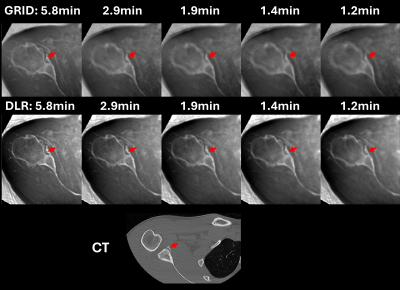 |
0156. Accelerated
1.2-minute 4-echo UTE-based CT-like Imaging using CG-SENSE and
Deep Learning-based Denoising Reconstruction (DLR)
H. Do, K. Sorfleet, M. Bekku, D. Berkeley, T. Kawai, B.
Tymkiw, W. AlGhuraibawi, M. Kadbi, D. Devries, M.
Provencher, S. Tashman, C. Ho
Canon Medical Systems USA, Inc., Tustin, United States
Impact: CG-SENSE+DLR improves the resolution and
sharpness of CT-like images that couples with a potential
1.2min scan time would encourage wider clinical adoption of
radiation-free UTE for bone assessment.
|
| 13:57 |
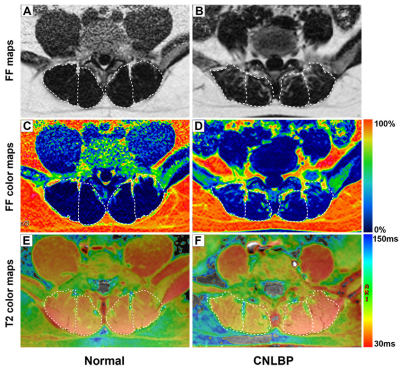 |
0157. Quantitative
MRI Assessment of Paraspinal Muscles using T2 mapping and
IDEAL‑IQ in Chronic Non-Specific Low Back Pain in Young Adults
M. Luo, K. Zhang, W. Liu
The First Hospital of Hunan University of Chinese Medicine, ChangSha, China
Impact: This study highlights the potential of T2
mapping and fat fraction (FF) for detecting early
pathological changes in paraspinal muscles of young adults
with CNLBP, offering a non-invasive tool to improve early
diagnosis and therapy.
|
| 14:09 |
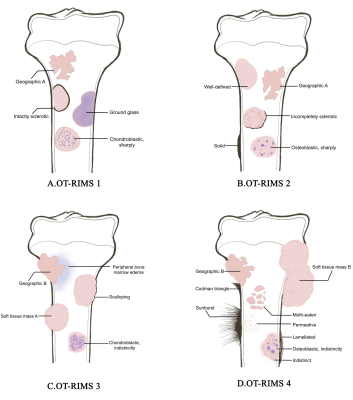 |
0158. A
New Classification and Stratification System for Solitary Bone
Tumor: Osseous Tumor Radiological and Interpretation and
Management System
H. Wu, L. Liu, J. Zhuang, Y. Zhu, H. Leng
Guangdong Provincial People's Hospital, Guangzhou, China
Impact: OT-RIMS provides a standardized, reproducible
framework for bone tumor risk stratification, improving
diagnostic accuracy and management. This system reduces
variability, enhances clinical decision-making, and opens
new research avenues for integrating imaging with molecular
data in tumor classification.
|
| 14:21 |
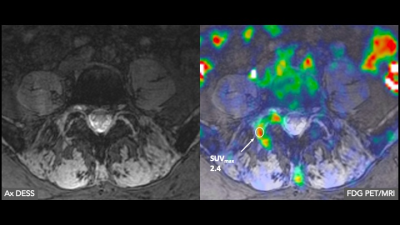 |
0159. The
potential of FDG PET/MRI for identification of pain generators
in patients with diagnostically challenging chronic
musculoskeletal pain
J. Mostert, E. Oei, M. Ananta, G. Muradin, F. Huygen, C. de
Vos, P. Bos, S. Biswal, R. van der Heijden
Erasmus University Medical Center, Rotterdam, Netherlands
Impact: In patients with diagnostically
challenging chronic low back pain or persistent pain after
total hip replacement, [18F]FDG PET/MRI uncovered previously
undetected pain sources. PET/MRI shows promise as a useful
diagnostic tool in patients suffering from diagnostically
challenging chronic pain.
|
| 14:33 |
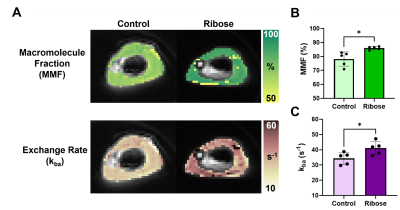 |
0160. Ultrashort
echo time magnetization transfer (UTE-MT) MRI detects
non-enzymatic crosslinking of collagen in ex vivo rat bones
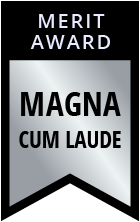
S. H. Shin, D. Moazamian, K. Pan, Q. Tang, S. Jerban, Y.
Ma, E. Chang, S. Shah, N. Calcutt, R. Sah, J. Pettus, G.
Woods, J. Du
UC San Diego, La Jolla, United States
Impact: The UTE-MT technique showed significant
sensitivity to non-enzymatic crosslinking of bone collagen,
a key mechanism that explains the increased fracture risk of
T2D patients. The UTE-MT can be an accurate noninvasive
diagnostic tool for probing bone health of T2D patients.
|
| 14:45 |
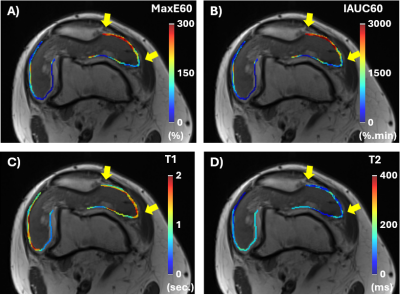 |
0161. Non-contrast
Imaging of Knee Synovitis in Rheumatoid Arthritis: Comparison of
T1 and T2 Mapping with Dynamic Contrast-Enhanced MRI
S. Zbyn, R. Lartey, B. Eck, C. Colak, M. E. Husni, X. Li, C.
Winalski
Cleveland Clinic, Cleveland, United States
Impact: This study highlights the potential of T1
mapping as an alternative to contrast-enhanced MRI for
assessing knee synovitis in patients with rheumatoid
arthritis. T1 mapping may facilitate broader evaluation of
knee synovitis, especially in patients with
contraindications to contrast-enhanced MRI.
|
| 14:57 |
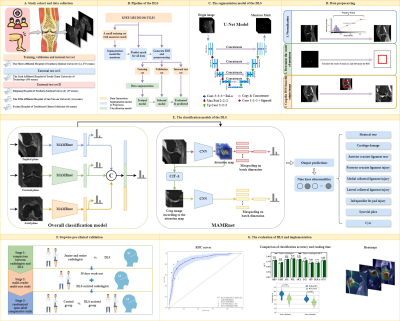 |
0162. Development
of a deep learning system for comprehensive classification of
common knee abnormalities from MRI: a large-scale, multi-center
study
Z. Xie, Z. Qiu, M. Wang, Y. Li, L. Song, Y. Shao, X. Chen,
C. Li, H. Chen, Y. Zhao
The Third Affiliated Hospital of Southern Medical University , Guangzhou, China
Impact: Our DLS markedly enhanced radiologists’
diagnostic accuracy in knee MRI interpretation, streamlining
workflows and reducing reliance on radiologist experience,
thereby ensuring more consistent management and showcasing
DLS’s transformative potential in clinical radiology
practice.
|
| 15:09 |
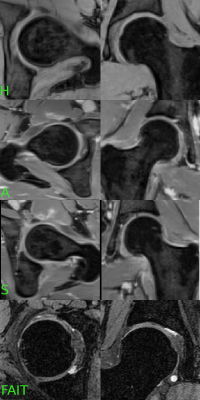 |
0163. Fully
Automated Radiomic Analysis to Differentiate Pain Profiles in
Femoroacetabular Impingement: A Robust MRI-Based Model
E. Montin, I. Khodarahmi, S. Namireddy, H. Subbiah Ponniah,
K. Logishetty, G-J Sion, R. Lattanzi
New York University Grossman School of Medicine, New York, United States
Impact: This fully automated method allows clinicians to
reliably differentiate pain profiles in FAI patients across
diverse imaging protocols, enhancing personalized treatment
strategies. It paves the way for broader clinical adoption
of MRI-based radiomics for musculoskeletal disorders,
supporting efficient, reproducible diagnostics.
|
| 15:21 |
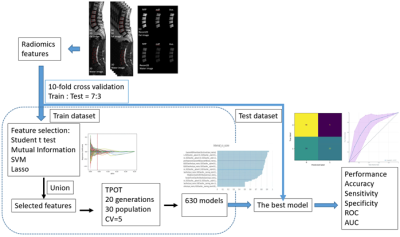 |
0164. Optimizing
Osteoporosis Detection: AutoML -Radiomics Approach Combining
Imaging and Demographic Data
Y-Y Cheng, C-W Chen, C-H Hsieh, C-H Liao, M-C Liu, S-C Lin,
C-C Tai, T-Y Chiu, Y-Z Hsieh, Y-J Liu
Feng Chia University, Taichung, Taiwan
Impact: Because osteoporosis is often considered a
'silent' disease, routine IDEAL-IQ lumbar scans have the
potential to serve as an opportunistic screening tool for
reducing the risk of fragility fractures, which are
associated with morbidity and mortality.
|
| 15:33 |
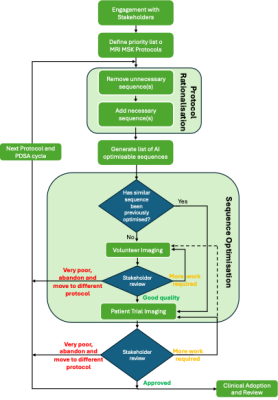 |
0165. Increasing
MSK MRI Capacity using Artificial Intelligence based Image
Reconstruction (AI-IR): A Quality Improvement Project
P. J. Martin, Z. Hurcum, S. Cross, F. Pepito Ablen, M. V.
Papoutsaki, S. Sivrajah, R. Jalan, K. Ambalawaner, M. Ahmad,
S. Moeen, D. Pefanis, H. Dupreez, S. Vaidya, S.
Ganeshalingham, R. Bennetti, D. Adams, A. Peplinski, M.
Miquel
Barts Health NHS Foundation Trust, London, United Kingdom
Impact: MRI referrals are rising exponentially,
necessitating increasing MRI capacity. This work outlines a
QI strategy that can increase capacity using AI and existing
infrastructure.
|
The International Society for Magnetic Resonance in Medicine is accredited by the Accreditation Council for Continuing Medical Education to provide continuing medical education for physicians.